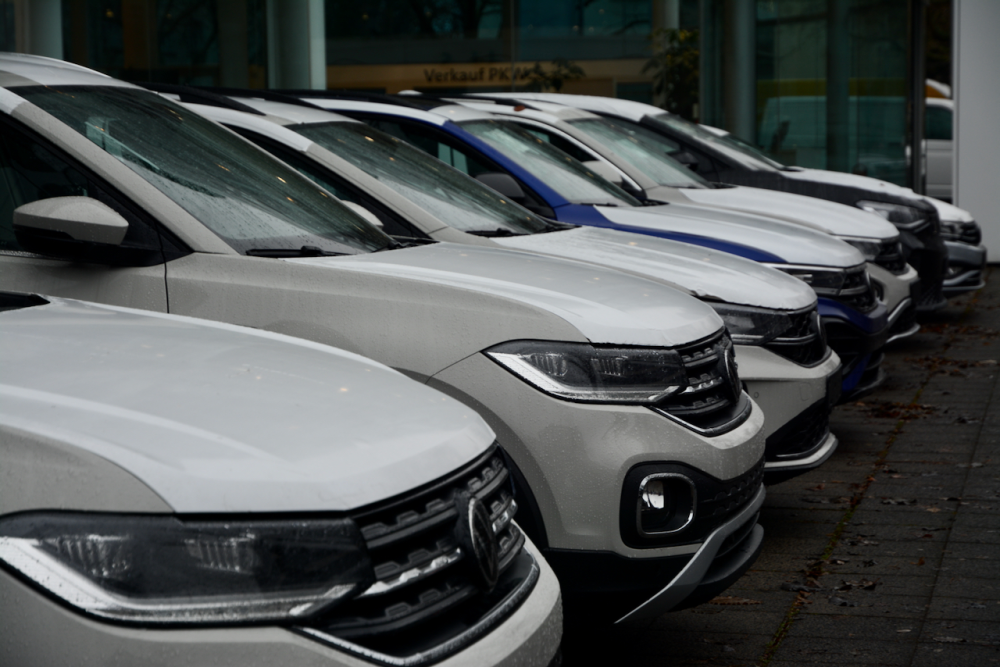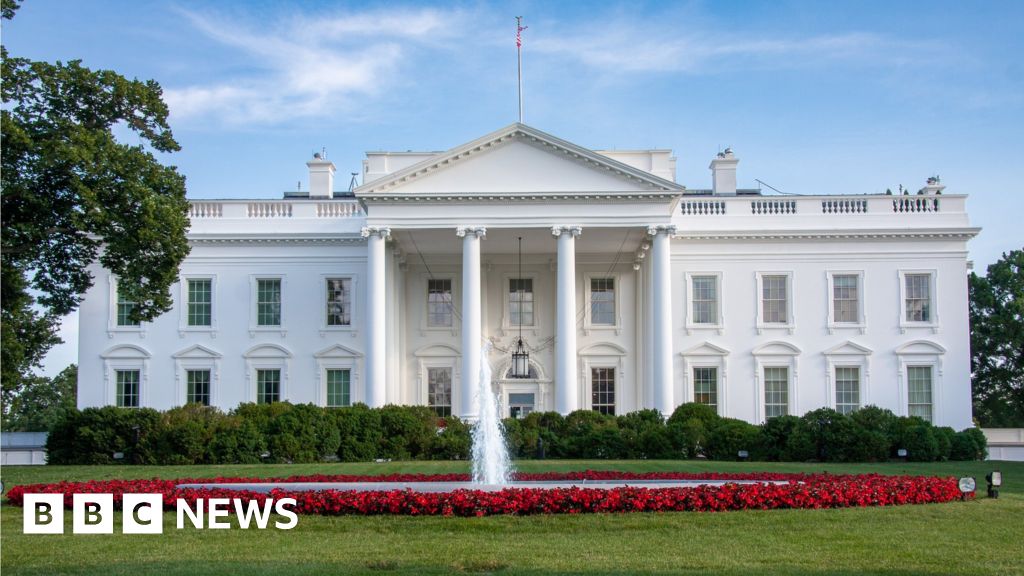Auto Dealerships Push Back Against Mandatory EV Sales Targets

Table of Contents
Financial Burden and Infrastructure Challenges
The transition to an EV-centric market presents auto dealerships with considerable financial hurdles. Meeting mandatory EV sales targets requires significant upfront investments in infrastructure and employee training, placing a considerable strain, particularly on smaller dealerships. These costs related to EV infrastructure investment are substantial and often overlooked.
- High upfront costs: Installing charging stations, purchasing specialized EV maintenance tools, and upgrading existing facilities represent a considerable financial burden. These costs can easily reach hundreds of thousands of dollars, depending on the dealership's size and location.
- Inventory management challenges: Limited consumer demand in certain regions can lead to unsold EV inventory, resulting in substantial financial losses for dealerships. Balancing EV inventory with traditional internal combustion engine (ICE) vehicles presents a significant logistical and financial challenge.
- Insufficient government support: Many dealerships argue that current government incentives and funding programs are insufficient to offset the high costs associated with EV infrastructure improvements and training. More substantial financial aid is needed to ease the transition.
- Employee training needs: Dealerships need to invest in extensive training programs to equip their staff with the necessary skills to service and maintain EVs. This includes specialized knowledge of EV batteries, charging systems, and other unique aspects of electric vehicle technology.
Dealerships contend that the current pace of government support is inadequate to mitigate these financial pressures, creating a potentially unsustainable situation for many businesses, especially those in less populated areas. The financial strain on dealerships directly impacts their ability to effectively participate in the transition to EVs.
Concerns about Consumer Demand and Market Readiness
Beyond the financial hurdles, dealerships express serious concerns about consumer readiness for widespread EV adoption. The current market, while growing, isn't uniformly prepared for the rapid shift mandated by government targets.
- Limited charging infrastructure: Range anxiety remains a significant barrier to EV adoption, especially in areas with limited public charging infrastructure. Consumers hesitate to purchase EVs if they are uncertain about the availability of charging stations during long journeys.
- Consumer perception: Public perception of EV technology, including charging convenience, reliability, and overall cost, needs further improvement before widespread adoption can be expected. Addressing these concerns through education and improved technology is crucial.
- Pace of technological development: The current pace of EV technology development may not be able to keep up with the ambitious targets set by governments. Range, charging time, and battery life are still areas that need significant improvement before EVs can completely replace ICE vehicles.
- Varying consumer preferences: Consumer preferences differ significantly based on factors such as lifestyle, driving habits, and geographical location. The assumption that all consumers are equally ready to embrace EVs is unrealistic.
Many dealerships believe that the mandated targets are significantly outpacing consumer demand and market readiness, placing undue pressure on dealerships to sell EVs before the market is truly prepared.
The Impact on Rural Dealerships
The challenges posed by mandatory EV sales targets are particularly acute for rural dealerships. These dealerships face unique obstacles related to the accessibility and infrastructure required for EV adoption.
- Charging infrastructure gaps: Installing and maintaining adequate charging infrastructure in rural areas presents a significant logistical and financial challenge due to lower population density and limited access to electricity grids.
- Limited access to services and expertise: Rural dealerships often face difficulties accessing EV-related services, parts, and specialized expertise, increasing repair and maintenance costs.
- Increased transportation costs: Both dealerships and consumers in rural areas face potentially increased transportation costs due to the longer distances to charging stations and service centers.
- Economic viability at risk: The cumulative effect of these challenges poses a serious threat to the economic viability of many rural dealerships, potentially leading to business closures and economic hardship in these communities.
The transition to EVs risks creating significant economic disparities between urban and rural areas, highlighting the need for tailored solutions to address the unique challenges faced by rural dealerships.
Advocacy for a More Gradual Transition
Instead of imposing strict mandates, auto dealerships advocate for a more collaborative and phased approach to the transition to EVs. This would enable a more sustainable and manageable shift, avoiding undue strain on businesses and ensuring consumer readiness.
- Phased implementation of EV mandates: A gradual increase in EV sales targets over time would allow dealerships to adapt their operations and infrastructure at a sustainable pace.
- Realistic sales targets: Setting targets that align with actual consumer demand and market readiness is crucial to avoid creating unnecessary economic pressure on dealerships.
- Collaboration between government and industry: Increased collaboration between government agencies and the automotive industry will foster a more effective and equitable transition, considering the input and concerns of all stakeholders.
- Increased government support and incentives: Enhanced government support and incentives would help dealerships offset the costs associated with transitioning to EVs and building the necessary infrastructure.
A collaborative approach focused on realistic targets, substantial government support, and a gradual transition will pave the way for a successful and sustainable shift to electric vehicles.
Conclusion
The pushback from auto dealerships against mandatory EV sales targets underscores the significant challenges inherent in a rapid transition to an electric vehicle future. Concerns regarding financial burdens, consumer demand, and inadequate infrastructure are valid and require careful consideration. Finding a balance between the urgent need to combat climate change and the need to support the livelihoods of auto dealerships is paramount. A collaborative approach, incorporating realistic mandatory EV sales targets, substantial government support, and increased consumer awareness, is crucial for achieving a successful and sustainable transition to electric vehicles. Ignoring the concerns of dealerships could lead to unintended consequences, hindering the very progress these mandates aim to achieve.

Featured Posts
-
 Mlb Game Recap Twins Beat Mets 6 3
Apr 28, 2025
Mlb Game Recap Twins Beat Mets 6 3
Apr 28, 2025 -
 East Palestine Train Derailment Prolonged Toxic Chemical Exposure In Buildings
Apr 28, 2025
East Palestine Train Derailment Prolonged Toxic Chemical Exposure In Buildings
Apr 28, 2025 -
 White House Cocaine Incident Secret Service Announces End Of Investigation
Apr 28, 2025
White House Cocaine Incident Secret Service Announces End Of Investigation
Apr 28, 2025 -
 U S Iran Nuclear Talks Stalemate On Key Issues
Apr 28, 2025
U S Iran Nuclear Talks Stalemate On Key Issues
Apr 28, 2025 -
 Federal Job Loss Finding New Employment In State And Local Government
Apr 28, 2025
Federal Job Loss Finding New Employment In State And Local Government
Apr 28, 2025
